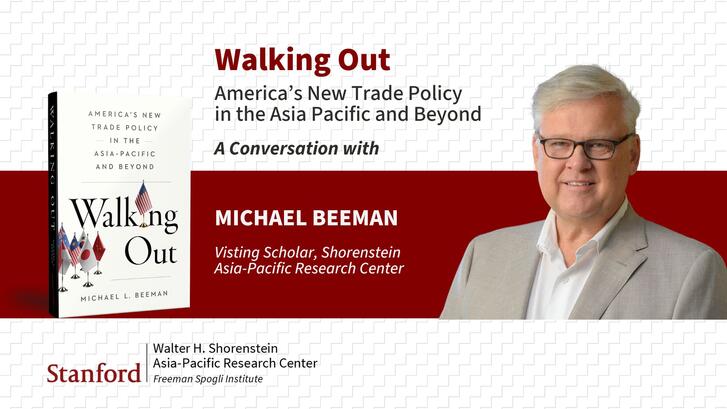Japanese Ambassador to the US Visits Stanford for Dialogue on U.S.-Japan Relations and Global Security
Japanese Ambassador to the US Visits Stanford for Dialogue on U.S.-Japan Relations and Global Security
In a recent visit by a delegation from Japan's Embassy to the United States and Consulate-General of Japan in San Francisco, Ambassador Shigeo Yamada and Stanford experts discussed pressing issues affecting U.S.-Japan relations, regional security, and the international legal order. Hosted by APARC's Japan Program, the visit highlighted the role of academic institutions in informing policy and global cooperation.

On September 13, 2024, the Japan Program at APARC welcomed to Stanford a delegation from the Embassy of Japan in the United States and the Consulate-General of Japan in San Francisco, including Ambassador Shigeo Yamada and Consul General Yo Osumi. The visit included a discussion of the Japanese diplomats with Stanford faculty members. Moderated by Japan Program Director Kiyoteru Tsutsui, the discussion focused on current issues affecting U.S.-Japan relations, regional and global security, and opportunities for strengthening U.S.-Japan academic exchange.
Yamada, who assumed his post as Ambassador Extraordinary and Plenipotentiary of Japan to the United States of America in December 2023, shared his experiences serving in the Abe and Kishida administrations and reflected on Japan’s concerns regarding the Russia-Ukraine war. He emphasized that Russia's aggression is a threat to the rule of law and represents a broader threat in East Asia. He expressed his hope that bilateral efforts will continue to counter these challenges.
The September 27 Liberal Democratic Party presidential election in Japan and the forthcoming November presidential election in the United States were also a major topic of conversation. Ambassador Yamada voiced his optimism, stating that regardless of the election outcomes, the strong foundation of the U.S.-Japan alliance will remain a constant. This bilateral relationship, he noted, is essential to navigating future geopolitical shifts.
Sign up for APARC newsletters to receive our experts' analysis and commentary.

Stanford faculty members posed questions to Ambassador Yamada, touching on topics ranging from Japan-U.S.-Republic of Korea trilateral relations to the future of NATO’s role in Asia security. Ambassador Yamada underscored his belief in the growing strength of the Japan-Korea relationship, particularly among younger generations.
Ambassador Yamada and Consul General Osumi expressed a desire to deepen collaboration with academic institutions like Stanford and cultivate environments where Japanese scholars can thrive in global research ecosystems. In this context, the Ambassador addressed the decline in Japan’s global standing in science and technology research. He noted that, while Japan once led the way in innovation, there is a concern that the nation’s researchers are not sufficiently engaging with their international counterparts, including those in the United States.
A highlight of the discussion was the participation of Miku Yamada, a recent graduate of the Ford Dorsey Master's in International Policy Program at the Freeman Spogli Institute for International Studies now serving as Second Secretary at the Embassy of Japan in Washington, DC. Yamada described how her experience at Stanford has shaped her career path and shared her passion for inspiring other Japanese students to pursue academic and research opportunities abroad.
The visit reaffirmed the commitment of Japan and the United States to maintaining a strong bilateral relationship, with continued emphasis on academic partnerships as a means of fostering mutual understanding and addressing global challenges. Ambassador Yamada expressed his enthusiasm for continued engagement with Stanford scholars and sharing their insights to inform U.S.-Japan policy discussions.



